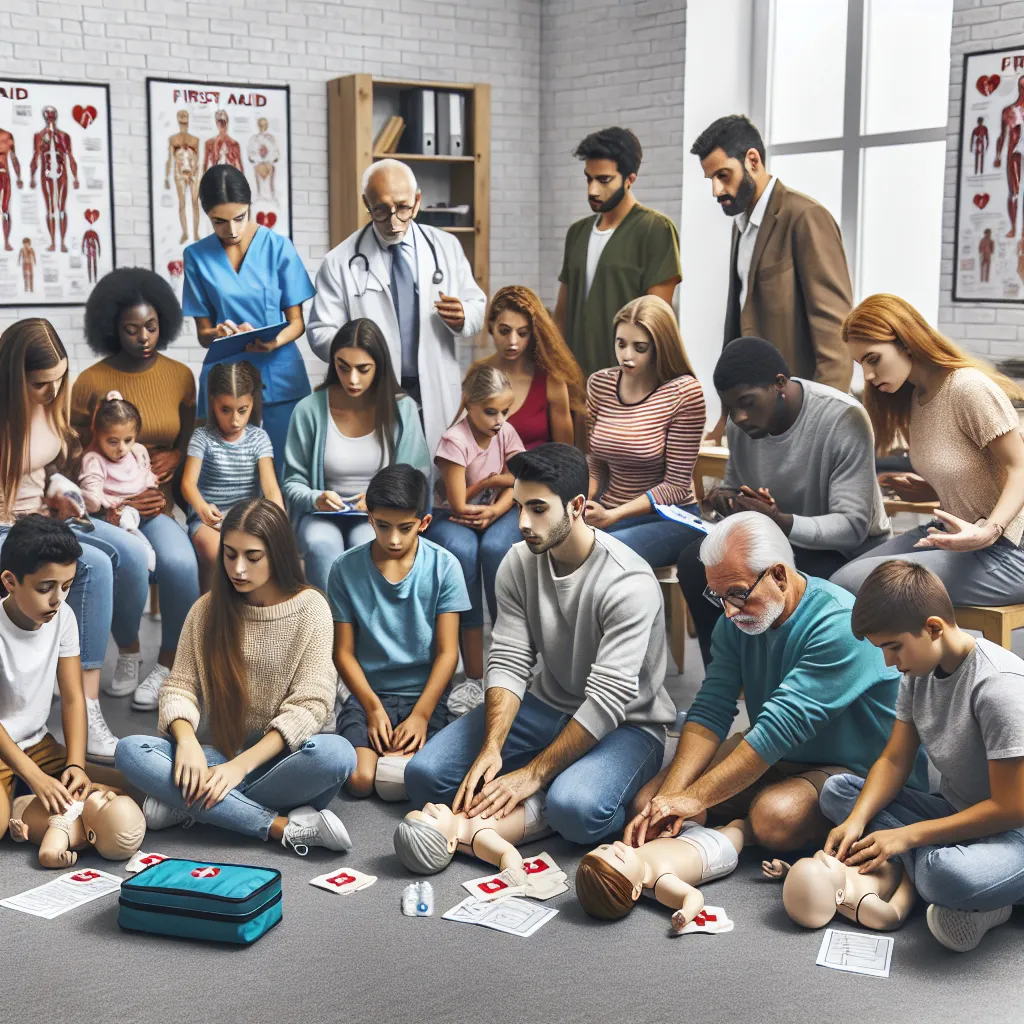The article discusses the importance of basic first aid techniques for common injuries, emphasizing the significant impact of immediate care in mitigating injury and preventing further complications. It covers essential skills such as managing bleeding, treating burns, addressing sprains, and dealing with nosebleeds, providing practical guidance for each scenario. Furthermore, it highlights the essential first aid skills everyone should know, including CPR, controlling bleeding, recognizing signs of stroke or heart attack, and managing various injuries and medical emergencies. The article compellingly stresses the value of being prepared and empowered with necessary skills to create a safer environment for all.
Essential First Aid Techniques Everyone Should Know
The article provides comprehensive guidance on basic CPR steps, emphasizing the importance of quick and effective action in emergency situations. It highlights the critical steps of assessing the scene, performing chest compressions, and giving rescue breaths, stressing the significance of proper training and regular practice in emergency preparedness. Furthermore, the article delves into essential techniques for treating common injuries and wounds, stressing the significance of thorough wound cleaning and providing practical advice for different types of wounds. Finally, it underscores the importance of recognizing and responding to medical emergencies, underlining the need for being informed and prepared to provide timely care, whether for minor injuries or life-threatening conditions. The detailed insights and practical tips in the article make it a valuable read for anyone seeking to enhance their first aid knowledge and skills.
The Importance of First Aid Training in Emergency Situations
Understanding the vital role of first aid training in emergency response is essential for individuals and communities. This training equips people with the knowledge and skills required to provide immediate assistance in various emergency situations, potentially impacting outcomes significantly. In critical moments, trained individuals can make a life or death difference, also easing the burden on professional emergency responders in larger-scale emergencies. Additionally, first aid training fosters a culture of preparedness and empowerment within a community, enhancing overall safety and resilience. Recognizing the immediate impact of first aid skills in saving lives is crucial, as the actions taken in the first few minutes following an emergency can be the difference between life and death. Therefore, investing in first aid training is vital for creating safer and more prepared communities.


